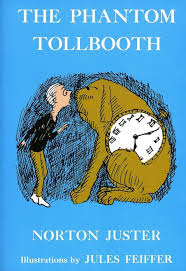How often do our students consider their mistakes to be signs of failure? How many students, as well as families, believe that the goal of learning mathematics is solely to get the correct answer? How often, on arriving at an answer, do students believe their thinking about the problem is finished? In The Phantom Tollbooth, author Norton Juster offers a valuable contrasting perspective: Just as Reason explains to Milo, students can use their mistakes as learning opportunities to develop a deeper understanding of the mathematics that they are doing—although we may need to help them along the way.

Can you recall an experience when an important mistake helped you to understand an idea or a skill that was not clear?
The recent neurological research on the brain and mistakes is hugely important for math teachers and parents, as it tells us that making a mistake is a very good thing. Mistakes are not only opportunities for learning, as students consider the mistakes, but also times when our brains grow. Understanding the power of mistakes is critical, as children and adults everywhere often feel terrible when they make a mistake in math. They think it means they are not a math person, because they have been brought up in a performance culture (Boaler, 2014) in which mistakes are not valued—or worse, they are punished.
Therefore, how we respond to productive errors can encourage or discourage student thinking and learning. How you respond to mistakes has the potential to discourage students or to help them become more confident in their ability to do mathematics. This new confidence can transform student attitudes toward learning mathematics.
Be sure to share some examples of mistakes that have changed the world. Some of the more notable “mistakes” include Coca-Cola, sticky notes, rubber tires, chocolate chip cookies, and penicillin. You never know what the next great mistake may be!
Excerpts from the Message from the President of NCTM, Linda M. Gojak in 2013 and Jo Boaler from YouCubed.org - Mistakes Grow your Brain.
Check out the Monthly Math Problem!